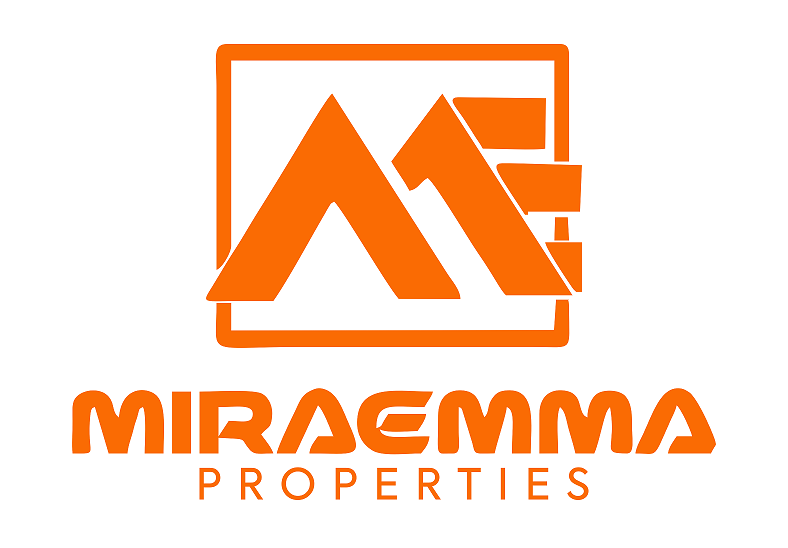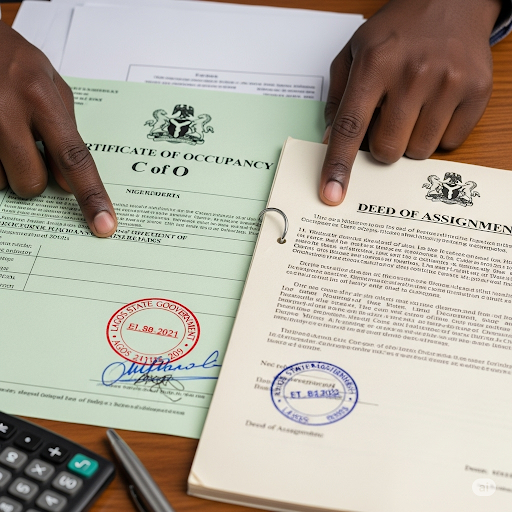When you enter the world of Nigerian real estate, you’re immediately hit with a flood of acronyms and legal jargon. C of O, R of O, Governor’s Consent, Deed of Assignment—it can feel overwhelming and confusing. But understanding these core documents is the single most important step you can take to protect your investment.
What do these terms actually mean? Which ones should the seller have, and which ones will belong to you?
Let’s break it down in simple terms. Think of the documents in two main groups: those that establish the root ownership from the government, and those that transfer that ownership to you.
The Foundation: Root of Title Documents
These documents are the ultimate proof that the land is legally recognized by the government. They are the “birth certificate” of the property.
1. Certificate of Occupancy (C of O) A Certificate of Occupancy is a document issued by the state government that proves a person or company has the legal right to a piece of land for a specific period (typically 99 years). It is the very first title issued on a piece of land, meaning the person named on it is the first-ever legal allottee. When a seller claims their land is “titled,” a C of O is one of the best titles they can have.
2. Right of Occupancy (R of O) A Right of Occupancy is functionally very similar to a C of O, but it is typically issued for land in the Federal Capital Territory (FCT), Abuja. It is the document that grants an individual or entity the right to use a plot of land within the FCT, as all land in Abuja is constitutionally owned by the Federal Government. For buyers in Abuja, an R of O is a secure and standard root title.
3. Governor’s Consent This is not a root title itself, but it’s a crucial supporting document. When someone with a Certificate of Occupancy decides to sell their land, they must get the “consent” of the state governor for that transaction. A Governor’s Consent is therefore proof that the government is aware of and has approved the transfer of ownership from the original owner to a subsequent buyer.
The Transfer: Your Proof of Purchase Document
This is the document that legally makes YOU the new owner.
Deed of Assignment: This is arguably the most important document for you as a buyer. A Deed of Assignment is the legal agreement that officially transfers ownership of the property from the seller (the “Assignor”) to you (the “Assignee”).
Think of it this way: if the C of O is the land’s birth certificate, the Deed of Assignment is the new title deed registered in your name. It details the history of the property, describes its exact size and location, and states that full ownership has been transferred to you permanently.
This document must be signed by both you and the seller and witnessed. After the purchase, this is the document you will hold as your primary proof of ownership.
How It All Works Together: A Simple Scenario
Let’s imagine a common transaction:
-
The Lagos State Government issues a Certificate of Occupancy (C of O) to Mr. Ade for a new plot of land. Mr. Ade is now the first official owner.
-
A few years later, you decide to buy the land from Mr. Ade.
-
Before the sale can be legally finalized, Mr. Ade must obtain the Governor’s Consent to sell the property.
-
A lawyer then drafts a Deed of Assignment. This document says, “I, Mr. Ade, the holder of this C of O, am now transferring my entire ownership of this land to you.”
-
Both you and Mr. Ade sign the Deed of Assignment.
The Result: You are now the new owner. Your proof of ownership is your perfected Deed of Assignment, which is supported by the history provided by the Governor’s Consent and the original C of O.
Your Security Lies in Verification
Understanding these documents is the first step. The second, and most critical, is verification. It is essential that these documents are verified at the official Land Registry before you pay.
This complex process is why partnering with a trusted real estate consultancy is so important. At MiraEmma Properties, we don’t just find you properties; we scrutinize the documentation to ensure every investment is secure and every title is verifiable.
Have more questions about land documents, or ready to view properties with secure titles? Let our experts guide you.









Join The Discussion